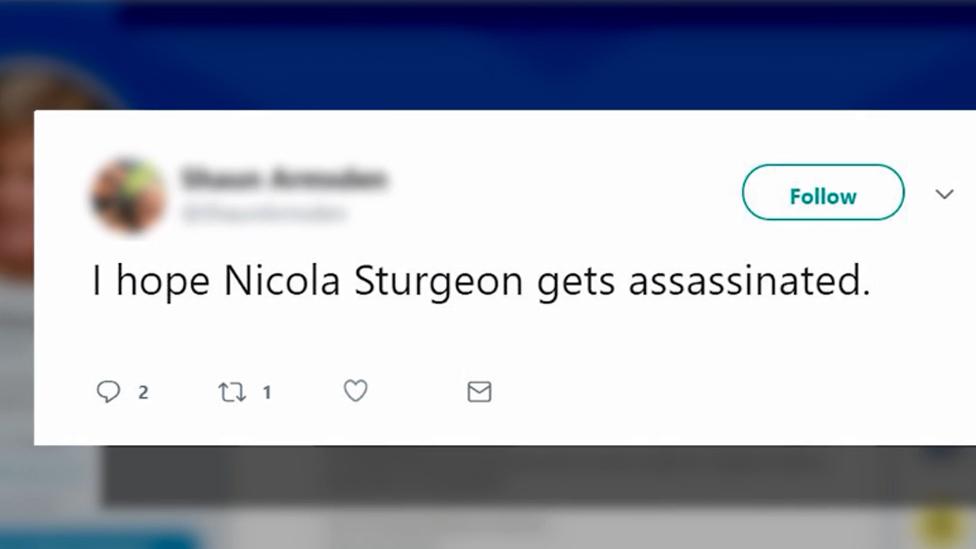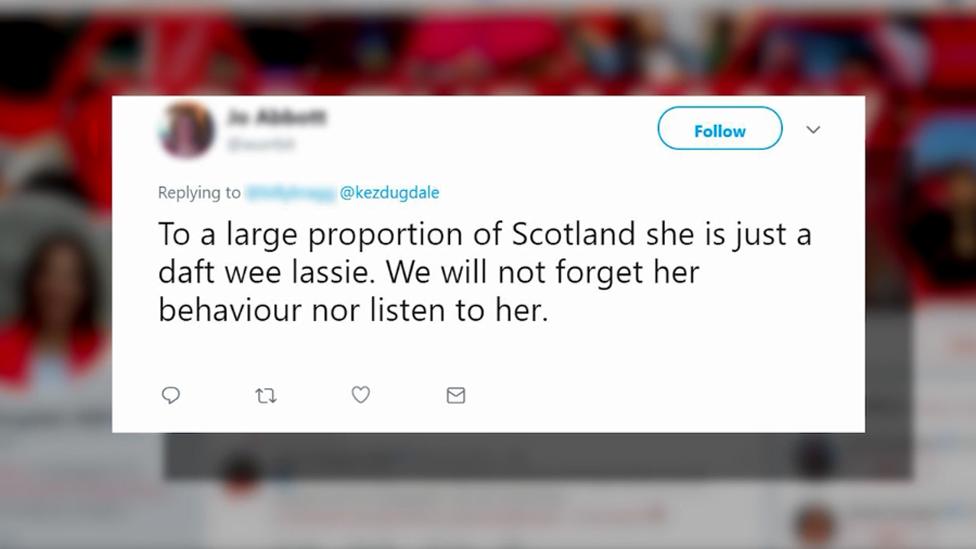Senior SNP figures call for end to online abuse
- Published

Prominent figures from the SNP have called for an end to online abuse in Scottish politics.
Alyn Smith MEP, Stewart McDonald MP and the party's former depute leader, Angus Robertson said the minority of Yes campaigners who engage in online abuse are undermining the independence cause.
The trio also said action must also be taken by those who back staying in the UK against abusive social media users on their side of the argument.
Mr Smith said the abuse was "damaging".
In an interview with the Herald on Sunday, external, he said the pro-independence community online had to address the social media problem "in the same way the Tartan Army had to clean up its act in the 1980s and then became a massive ambassadorial source for Scotland".
"We all need to step up. This is allowing us to be portrayed in a certain way that's damaging," he said.
Mr Smith added he believes that when pro-independence social media users are abusive and insulting, all members of the Yes movement should "call them out and send them to Coventry. Make them persona non grata forever - off you pop, you aren't one of us if that's how you behave".

Finance Secretary Derek Mackay said he was "addicted" to social media, but finds it increasingly hostile
Senior MSPs have raised concerns that the increasingly "polarised" political debate on social media is spilling over into abusive behaviour in "real life".
Three quarters of members have had security reviews at their local offices with community police officers.
Finance Secretary Derek Mackay said he had recently faced "aggressive" people swearing at him in the street, and Glasgow Conservative MSP Annie Wells said she has contacted Police Scotland over social media posts.
The SNP's former Westminster leader Angus Robertson said: "I'm expressly underlining the fact that this is an issue for both sides of the constitutional argument in Scotland, and more generally internationally where on social media, often because of anonymity, some people think that they can insult, attack and offend with impunity.
"I think these people are cowards and wouldn't be prepared to continue posting in the same way if they were identifiable, quite often because what they're saying and doing would be considered illegal. We need a cultural change."
He added: "There's been reticence by senior Yes supporters to call out abuse for fear of undermining the more general debate about Scotland's constitutional future, and rather than highlight the levels of abuse they received by unionist trolls to let it slide, or to avoid criticism because one is wanting to protect the reputation of public discourse more generally.
"This can't go on. People can't go on thinking they can sit in front of their keyboards and do nothing but send abuse to people they don't agree with. You wouldn't do it in public, you'd be thrown out of a pub for doing it, you'd never do it at a family event, why on earth would you do it online?"

Nicola Sturgeon has said she regularly receives threats of violence on Twitter such as this example

One of the misogynistic tweets which Labour MSP Kezia Dugdale says she also receives on Twitter
Last year First Minister Nicola Sturgeon said social media abuse makes her "angry" because "I worry it is putting the next generation of young women off politics".
Mr McDonald, MP for Glasgow South, who has been subjected to abuse from online trolls, said: "I don't understand these folk who insist on spreading poison and cynicism.
"What is it they think they're doing to help advance the case of Scottish independence? No-one serious engages with them, they aren't changing minds, they aren't persuading people, they all just seem to swirl around echoing each other.
"I know what it's like to be on the receiving end - just because you support Scottish independence doesn't make you any better... It makes you no better than the types of obnoxious thugs who turned up at Donald Trump's rallies."